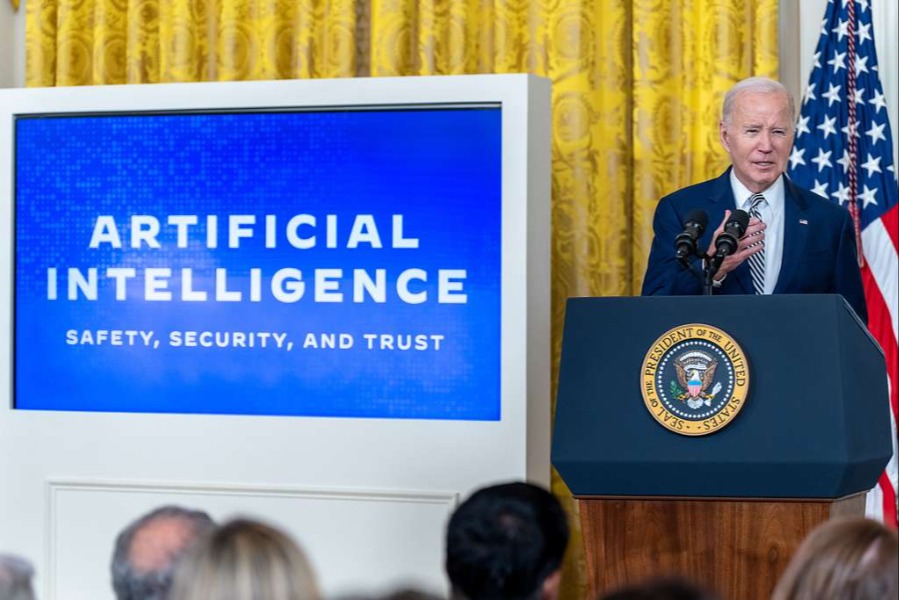Clearing the Way to Clear the Way for Secretary Mattis
As noted here, a law forbidding retired military officer from serving as Secretary of Defense until seven years after retirement currently stands in the way of the Mattis nomination, and will require fresh legislation to overcome. Now the path towards obtaining that legislation is beginning to come into focus.
Published by The Lawfare Institute
in Cooperation With

As noted here, a law forbidding retired military officer from serving as Secretary of Defense until seven years after retirement currently stands in the way of the Mattis nomination, and will require fresh legislation to overcome. Now the path towards obtaining that legislation is beginning to come into focus.
Yesterday, GOP leadership attached a Mattis-related amendment to a continuing resolution which is all but certain to pass this week (lest the government have to shut down after Friday--see here for more details). The amendment does not actually provide the needed statutory relief now, but instead ensures that said relief can be moved to the Senate floor very quickly and then be subject to a maximum of ten hours' debate (with 60 votes needed to approve it in the end). Here's the text:
Sec. 179. Expedited Consideration Of Certain Legislation.
(a) Qualifying Legislation Defined.—In this section, the term ‘qualifying legislation’ means a Senate bill or joint resolution-
(1) that is introduced in the Senate during the 30-calendar day period beginning on the date on which Congress convenes the First Session of the 115th Congress;
(2) the title of which is as follows: ‘To provide for an exception to a limitation against appointment of persons as Secretary of Defense within seven years of relief from active duty as a regular commissioned officer of the Armed Forces.’; and
(3) the matter after the enacting or resolving clause of which is as follows:
SECTION 1. EXCEPTION TO LIMITATION AGAINST APPOINTMENT OF PERSONS AS SECRETARY OF DEFENSE WITHIN SEVEN YEARS OF RELIEF FROM ACTIVE DUTY AS REGULAR COMMISSIONED OFFICERS OF THE ARMED FORCES.
(a) In General.—Notwithstanding the second sentence of section 113(a) of title 10, United States Code, the first person appointed, by and with the advice and consent of the Senate, as Secretary of Defense after the date of the enactment of this Act may be a person who is, on the date of appointment, within seven years after relief, but not within three years after relief, from active duty as a commissioned officer of a regular component of the Armed Forces.
(b) Limited Exception.—This section applies only to the first person appointed as Secretary of Defense as described in subsection (a) after the date of the enactment of this Act, and to no other person.
(b) Introduction.—During the 30-calendar day period described in subsection (a)(1), qualifying legislation may be introduced in the Senate by the Majority Leader (or the Majority Leader’s designee), the Minority Leader (or the Minority Leader’s designee), the Chairman of the Committee on Armed Services, or the Ranking Minority Member of the Committee on Armed Services.
(c) Consideration In The Senate.—
(1) COMMITTEE REFERRAL.—Qualifying legislation introduced in the Senate shall be referred to the Committee on Armed Services.
(2) REPORTING AND DISCHARGE.—If the Committee on Armed Services has not reported the qualifying legislation within 5 session days after the date of referral of the legislation, the Committee shall be discharged from further consideration of the legislation, and the qualifying legislation shall be placed on the appropriate calendar.
(3) PROCEEDING TO CONSIDERATION.—Notwithstanding Rule XXII of the Standing Rules of the Senate, it is in order at any time after the Committee on Armed Serves reports the qualifying legislation to the Senate or has been discharged from its consideration (even though a previous motion to the same effect has been disagreed to) to move to proceed to the consideration of the qualifying legislation, and all points of order against the qualifying legislation (and against consideration of the qualifying legislation) are waived. The motion to proceed is not debatable. The motion is not subject to a motion to postpone. A motion to reconsider the vote by which the motion is agreed to or disagreed to shall not be in order. If a motion to proceed to the consideration of the qualifying legislation is agreed to, the qualifying legislation shall remain the unfinished business until disposed of.
(4) CONSIDERATION.—Consideration of the qualifying legislation, and all debate, debatable motions, and appeals in connection therewith, shall be limited to not more than 10 hours, which shall be divided equally between, and controlled by, the Majority Leader and the Minority Leader or their designees. A motion to further limit debate is in order and not debatable. An amendment to, or a motion to postpone, or a motion to proceed to the consideration of other business, or a motion to recommit the qualifying legislation is not in order.
(5) VOTE ON PASSAGE.—The vote on passage shall occur immediately following the conclusion of the debate on the qualifying legislation and a single quorum call at the conclusion of the debate, if requested in accordance with the rules of the Senate. Passage of the qualifying legislation shall require an affirmative vote of three-fifths of the Members, duly chosen and sworn.
(6) RULINGS OF THE CHAIR ON PROCEDURE.—Appeals from the decisions of the Chair relating to the application of the rules of the Senate, as the case may be, to the procedure relating to qualifying legislation shall be decided without debate.
(7) CONSIDERATION OF VETO MESSAGES.—Consideration in the Senate of any veto message with respect to the qualifying legislation, including all debate, debatable motions, and appeals in connection therewith, shall be limited to 10 hours, to be equally divided between, and controlled by, the Majority Leader and the Minority Leader or their designees.
(d) Rules Of The Senate.—This section is enacted—
(1) as an exercise of the rulemaking power of the Senate and as such is deemed a part of the rules of the Senate, but applicable only with respect to the procedure to be followed in the Senate in the case of qualifying legislation described in subsection (a), and supersedes other rules only to the extent that this section is inconsistent with such rules; and
(2) with full recognition of the constitutional right of the Senate to change the rules (so far as relating to the procedure of the Senate) at any time, in the same manner, and to the same extent as in the case of any other rule of the Senate.





